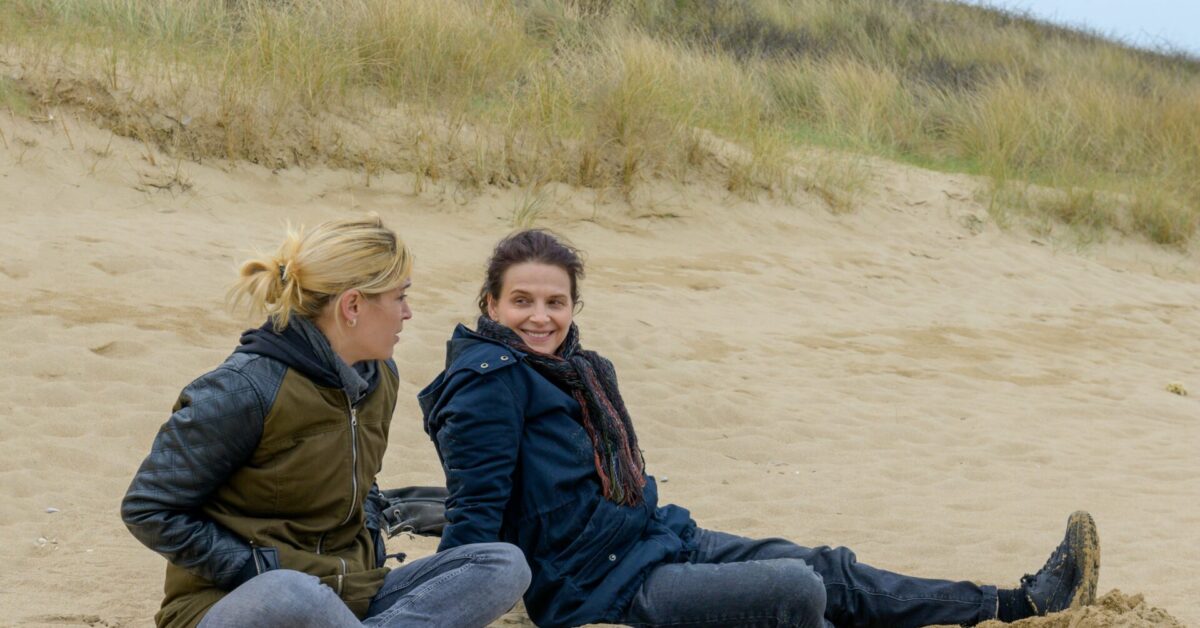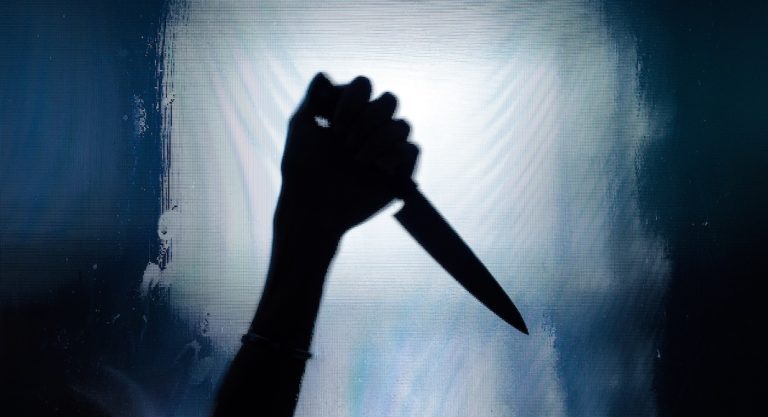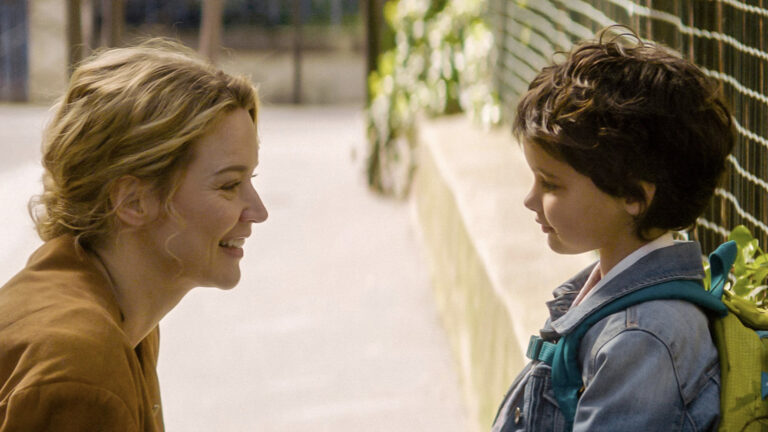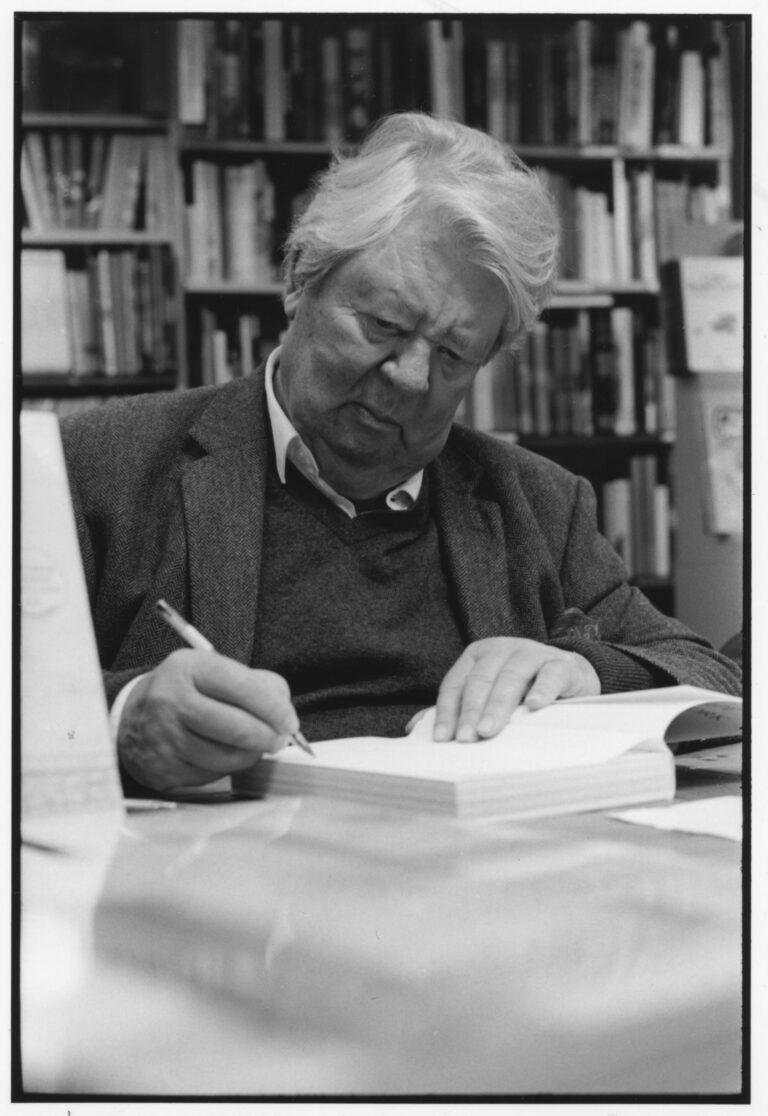When we meet Marianne, the protagonist of Between Two Worlds, co-written and directed by the celebrated author, screenwriter and director, Emmanuel Carrère, she’s looking for work. Her resume has a 20-year lapse in it, because she hasn’t worked since she got married. Now divorced, she’s broke and willing to do anything. After some training and a couple random cleaning gigs, Marianne joins a team of night cleaners on the ferry that runs between Ouistreham and Portsmouth, England, doing grueling work that pays minimum wage.
About a half hour into the film, we learn that Marianne’s backstory is completely fabricated: the cheating ex-husband who owns a garage, the unemployment and lack of funds. She gets busted by her contact at the unemployment agency who thought she looked familiar and read her last book. Marianne, it turns out, is a well-known writer researching her next book on poverty and the French gig economy during the global financial crisis.
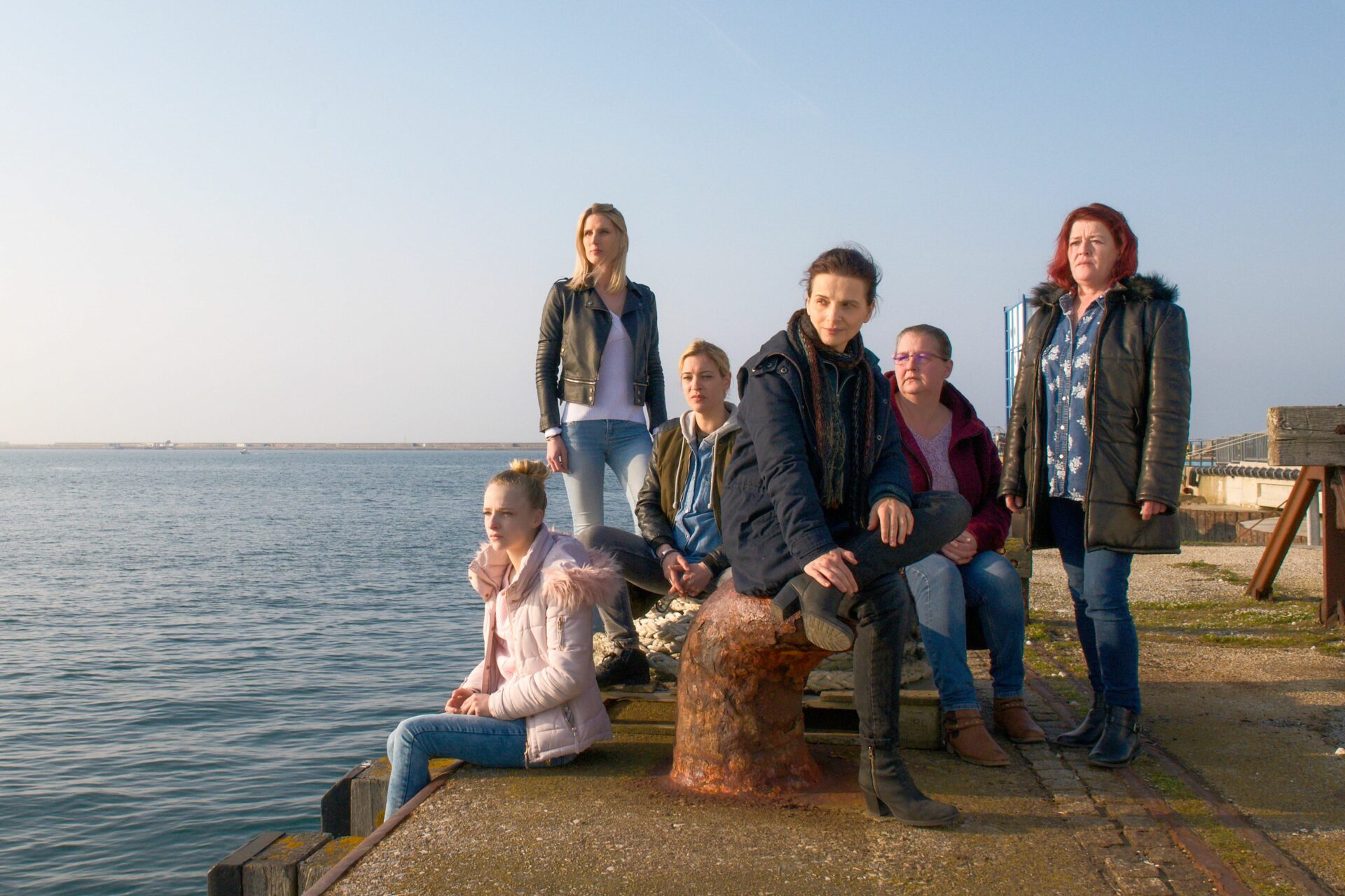
“Between Two Worlds” Review
The film is based loosely on journalist Florence Aubenas’ bestselling nonfiction book The Night Cleaner, for which she moved to Caen, in northern France, to go undercover. Like Marianne, she cleaned rooms on the Ouistreham ferry. The resulting exposé painted a disturbing portrait of what this backbreaking and exploitative work was like for real people struggling to survive during a global recession. Though the film delivers much of that message, it shifts its focus to the relationships Marianne forms with the people she meets, largely women, some of whom become close friends.
Between Two Worlds was a passion project for Juliette Binoche, who stars as Marianne. She lobbied Aubenas for the rights to adapt her story for years before the author finally agreed, under the condition that Carrère direct it. The resulting film plays out almost like a thriller. We’re always waiting, heart pounding, for someone to find out Marianne is really a writer with a cushy life in Paris, who’s only cleaning up shit and vomit for research. When Marianne’s friends joke about winning the lottery, Christèle (Hélène Lambert), a single mom of three who becomes Marianne’s close friend, says she’d blow it on 300 euro sneakers and tattoos. Marilou (Léa Carne), another jeune amie, would grab her boyfriend’s hand and run straight out of this hellhole. Marianne tells them she has no idea what she’d do with all that money… an answer that could only come from someone who’s never had to think about what she lacks in life.
There are moments of sheer panic, like when Marianne catches Christèle, who she’s grown so close to, looking through her purse. But these heart-pounding scenes are balance with touching moments, like when Christèle and her kids bake Marianne a birthday cake and give her a gift she knows they can’t afford. When she and her friends get stuck on the ferry and hole up in a first-class compartment drinking complimentary champagne and making plans for the future, Marianne worries about getting caught, and at the same time yearns to come clean.
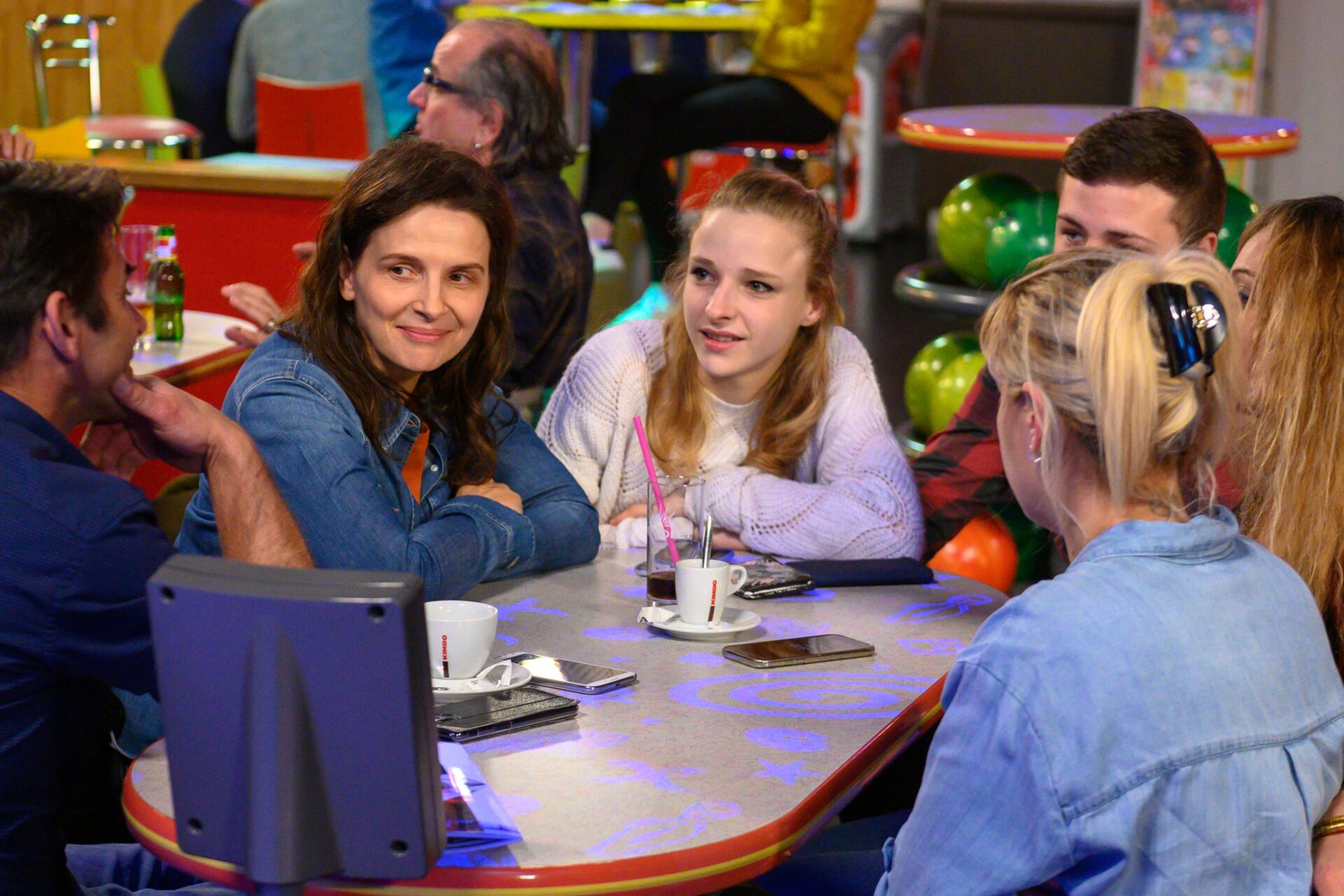
The “Two Worlds” Film Genre
There’s a popular subgenre of films about people who embed themselves in the lives of others with the best of intentions only to find themselves scrambling to keep up with their lies. The scenario leads to guilt, lessons learned, clashes of culture or class, and often a personal connection that needs to be massaged following the moment when the truth is revealed. There are romantic comedies like How to Lose a Guy in 10 Days and Tootsie. Not to mention the many undercover cop films in which the hero gets involved, often romantically, with someone whose world they are infiltrating. They range from serious films like The Departed and Point Break, to comedies like Miss Congeniality and the hilarious 2012 remake of 21 Jump Street, in which two policemen played by Channing Tatum and Jonah Hill pose as high school students to find out who’s dealing deadly drugs to local teens. The genre captivates viewers because we understand why the protagonist has to do what they’re doing, but also hate them a little for their deceit. We feel for them when their lives inevitably get all thorny and gnarled as we wait nervously for the moment of truth.
Many journalists, too, have gone undercover, often to expose unfair conditions in the workplace or explore the nature of intriguing subcultures. Notably Barbara Ehrenreich took low-wage jobs for her groundbreaking book Nickel and Dimed. Gloria Steinem famously became a Playboy bunny for 11 days to expose exploitative conditions at the Playboy Club in a 1963 Show magazine piece. And Hunter S. Thompson went undercover to join the motorcycle gang, the Hell’s Angels, for his book Hell’s Angels: The Strange and Terrible Saga of the Outlaw Motorcycle Gangs. In my own small-potatoes way, I also faced the consequences of an undercover assignment. My first book, Room for Love, was based an article I wrote for the New York Post, for which I pretended to look for a roommate as a ploy to meet men. I met a lot of them, snooped around their NYC apartments, went on some dates and ultimately had to fess up that I wasn’t really looking for an apartment at all. I was writing an article. Some found it amusing. One guy got his feelings hurt. He thought I’d liked him, then learned it was all for a story, and I felt like a jerk.
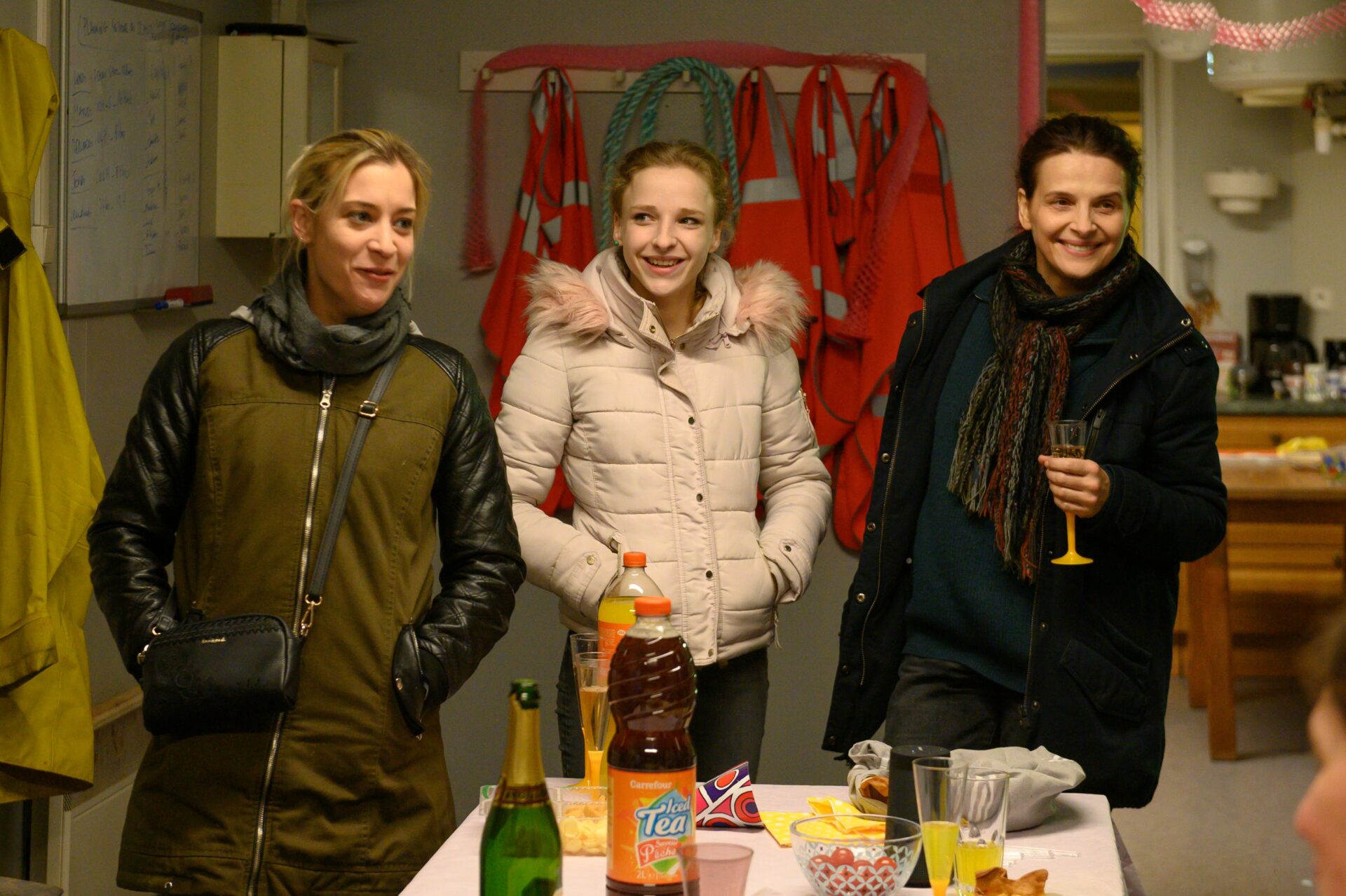
Class Traitors and Undercover Frauds
The stakes are considerably higher in Between Two Worlds. When Marianne’s friends learn that she isn’t poor or struggling, it’s hard for some of them to take. While the moments of connection between them seem genuine, some can’t move past the deception—and the disconnect between Marianne’s reality and theirs. Sure, she understands their lives better now that she’s done their jobs for a few months—and her book helps reveal their plight to a large audience—but she’s able to press stop and go back to her computer and AC and 150 euro dinners with friends at the new bistro everyone’s raving about in the Marais.
“You’re chic,” Christèle tells her when she sees Marianne in makeup and nice clothes for the first time. Is there a sneer on her lips, or is she about to cry?
This is powerful stuff. Carrère cast non-actors to play the people Marianne works with in Caen. Their doing their actual jobs, and their emotions—the anger, resentment, and frustration—roil and burn when triggered, especially those of Hélène Lambert, who plays Christèle, her feelings onscreen driven by her actual experience. The actors also display with authenticity the joy of simple pleasures like bowling with friends and drinking homemade mojitos out of the back of a pickup truck.
The part that’s toughest to take may be the betrayal these women feel when their friend dumps them to go back to a glamorous life they can’t even imagine. The inevitable moment and the inner turmoil it brings up for Marianne provide juicy material for Binoche as an actress, and offers the audience insight into what it might be like for the real people living this tough reality. The film effectively shows us the chasm that exists between Marianne, who tries on their way of life for a short period in hopes of spotlighting their plight, and her coworkers. For them, this isn’t an issue to be argued about by politicians or illuminated in a book. It’s their life.
BETWEEN TWO WORLDS opened on Friday, August 11 in New York (Quad Cinema) and Los Angeles (Laemmle’s Royal), and will be followed by a national expansion.
Andrea Meyer has written creative treatments for commercial directors, a sex & the movies column for IFC, and a horror screenplay for MGM. Her first novel, Room for Love (St. Martin’s Press) is a romantic comedy based on an article she wrote for the New York Post, for which she pretended to look for a roommate as a ploy to meet men. A long-time film and entertainment journalist and former indieWIRE editor, Andrea has interviewed more actors and directors than she can remember. Her articles and essays have appeared in such publications as Elle, Glamour, Variety, Time Out NY, and the Boston Globe.

